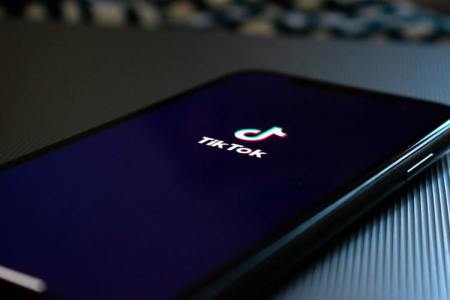Dirty Dozen List: TikTok adds family safety features helping parents control kids' accounts

After being ranked as one of the worst corporate entities complicit in “perpetuating” sexual exploitation, the social media giant TikTok is giving parents more control over their children’s use of the app through new family safety control features.
Weeks after being named on the National Center for Sexual Exploitation’s annual Dirty Dozen List, the social media video platform with over 500 million users announced new modes available to parents in the U.S. and U.K. to “keep their teens safe on TikTok.”
In the 2020 Dirty Dozen List, NCOSE said TikTok’s lack of moderation and safety controls had created a “space for sexual grooming by abusers and sex traffickers.”
But now, NCOSE is praising TikTok for allowing parents to link their accounts to their children’s accounts, giving them control of what TikTok is calling “Digital Wellbeing” features.
Parents will be able to determine how long their teen can spend on TikTok per day and limit who can send messages to the child’s account. The feature even gives parents the ability to turn off their child’s messaging abilities through the app entirely.
Through restricted mode, a parent can restrict the “appearance of content that may not be appropriate for all audiences.”
In a statement Wednesday, the company said the safety and well-being of its users are “incredibly important” and wants to encourage users to have “a healthy relationship with online apps and services.”
TikTok said its screen time management feature was introduced in 2019 to help people set limits for how long they spend on the app each day.
“We will keep introducing ways to keep our community safe so they can stay focused on what matters to them — creating, sharing, and enjoying the creativity of TikTok's community,” the announcement reads.
According to TikTok, the family safety mode is already available in the U.K. and will be rolled out to additional markets “in the coming weeks.”
Haley McNamara, NCOSE vice president of advocacy and outreach, said in a statement shared with The Christian Post that TikTok's improvements are “vital.”
She stressed that TikTok’s history of employing “some of the weakest safety features in the social media ecosystem” enabled it to be a “breeding ground” for sexual abuse and “sextortion.”
According to McNamara, the new “Family Safety Mode” addresses “many of the concerns our organization has brought to their attention.”
“For example, TikTok's Restricted Mode had to be re-set every 30 days, thus putting an undue burden on children to re-protect themselves over and over again from seeing sexually exploitive or other inappropriate content,” McNamara said.
“This Family Safety Mode will allow parents to set up Restricted Mode and to set limits on strangers direct messaging their children, a feature that has often been used by predators to groom children for sexual abuse or trafficking.”
McNamara stressed, however, that more improvements are necessary.
“[But] we are glad that TikTok is beginning to address the issues we have raised in a tangible way,” she said.
NCOSE, founded in 1962, is a leading nonpartisan nonprofit dedicated to addressing the “full-spectrum” of sexual exploitation from prostitution and sex trafficking to pornography and abuse. NCOSE has produced its annual Dirty Dozen List since 2013.
NCOSE has seen several successes from its Dirty Dozen List campaign when it comes to influencing change in corporations. One such success came as a result of the 2019 Dirty Dozen List, which named United Airlines.
Among the concerns NCOSE expressed was that United Airlines employees were ill-trained to prevent pornography by passengers on board airplanes. But the airline confirmed in January that it is providing new training to flight attendants on the topics of pornography and sexual harassment.
Others named to the Dirty Dozen List in 2020 include Amazon, Twitter, the state of Nevada, SeekingArrangment, Visa, Wish, Massage Envy, Wyndham, Steam, Google, Netflix and the Sports Illustrated Swimsuit Issue.





















